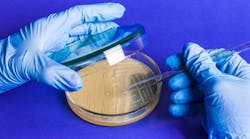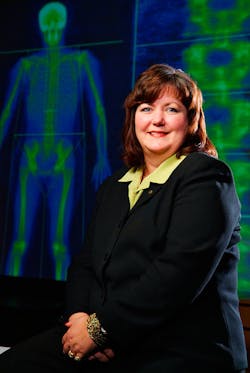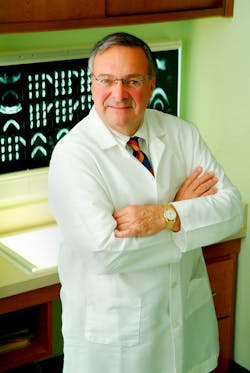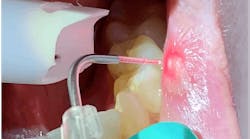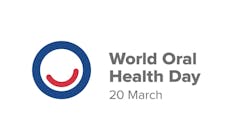University at Buffalo receives $4 million NIH grant to study oral health in postmenopausal women
University at Buffalo researchers have received an interdisciplinary bioinformatics grant of $3,986,404 from the National Institute of Dental and Craniofacial Research of the National Institutes of Health to conduct a prospective study of the oral microbiome and periodontitis in postmenopausal women.
It is research that its investigators say is on the cutting edge of science.
The study will investigate a critical gap in knowledge of the composition and role of the oral microbiome, comprised of the bacteria found in our mouths. It will consider, in particular, the microbiome of the subgingival area beneath the gums and especially between the gums and the basal part of the crowns of the teeth.
Researchers theorize that certain compositions of this diverse microbiome will be associated with periodontal disease prevalence, severity, and progression over time.
The study will involve investigators from the UB School of Medicine and Biomedical Sciences, the UB School of Dental Medicine, the UB School of Public Health and Health Professions, UB’s New York State Center for Excellence in Bioinformatics and Life Sciences, and the new Genomic Medicine Network, which is co-led by UB and the New York Genome Center.
Jean Wactawski-Wende, PhD,
Principal Investigator
The study’s principal investigator is Jean Wactawski-Wende, PhD, who is a professor in the Department of Epidemiology and Environmental Health at the UB School of Public Health and Health Professions, as well as the director of the Women’s Health Initiative’s Buffalo Center.
“To our knowledge, there is no prospective epidemiologic study as large and rich with available data resources that can address the cutting-edge questions we propose here on the oral microbiome and its relationship to periodontitis in postmenopausal women,” says Wactawski-Wende.
“We expect our results to lay the foundation for the study of the association of the oral microbiome to the development of other chronic diseases of aging,” she says.
The study will build on existing data from the Buffalo OsteoPerio Study, a study ancillary to the Buffalo Women’s Health Initiative that involved a well-characterized cohort of postmenopausal women from western New York. The baseline study was conducted from 1997 to 2001, with a five-year follow-up between 2002 and 2006.
“We will bring the subjects back about 15 years post-baseline to look at how their microbiome has changed over time,” explains Wactawski-Wende.
Researchers will use frozen subgingival plaque samples from that study collected at baseline and post-baseline at year five, data from standardized oral exams that will characterize the extent of subjects’ periodontal disease, and extensive information on personal factors (e.g., smoking, dietary intake, obesity, diabetes, hormone use) and overall health status.
Robert J. Genco, DDS, PhD,
Co-Principal Investigator
cutting edge of science,” notes co-principal investigator Robert J. Genco, DDS, PhD, a SUNY Distinguished Professor in the Department of Oral Biology at the UB School of Dental Medicine. “Periodontal disease is one of the most common diseases in older adults,” says Genco. “It involves altered host immune responses to subgingival insult by a complex olymicrobial biofilm that is not completely understood. New techniques to characterize this biofilm, made available very recently, will permit us to conduct this research.”
These techniques involve Next Generation Sequencing (NGS) using culture-independent techniques to identify 16S rRNA genes and allow for a more complete and detailed characterization of the microbial composition and diversity of the human oral cavity, Wactawski-Wende says.
In addition to their faculty roles, Wactawski-Wende serves as vice provost for strategic initiatives and research advancement at UB, and Genco directs the UB Office of Science, Technology Transfer, and Economic Outreach (STOR).
Study co-investigators in the UB School of Medicine and Biomedical Sciences are Yijun Sun, PhD, an assistant professor in the Department of Microbiology and Immunology, and Michael Buck, PhD, an assistant professor in the Department of Biochemistry, and director of the UB Stem Cell Sequencing/Epigenomics Center (WNYSTEM).
Co-investigators from the UB School of Public Health and Health Professions are Michael LaMonte, PhD, and Amy Millen, PhD, who are associate professors in the Department of Epidemiology and Environmental Health.
About the University at Buffalo
The University at Buffalo is a premier research-intensive public university, the largest and most comprehensive campus in the State University of New York. UB's more than 28,000 students pursue their academic interests through over 300 undergraduate, graduate, and professional degree programs. Founded in 1846, the University at Buffalo is a member of the Association of American Universities.
